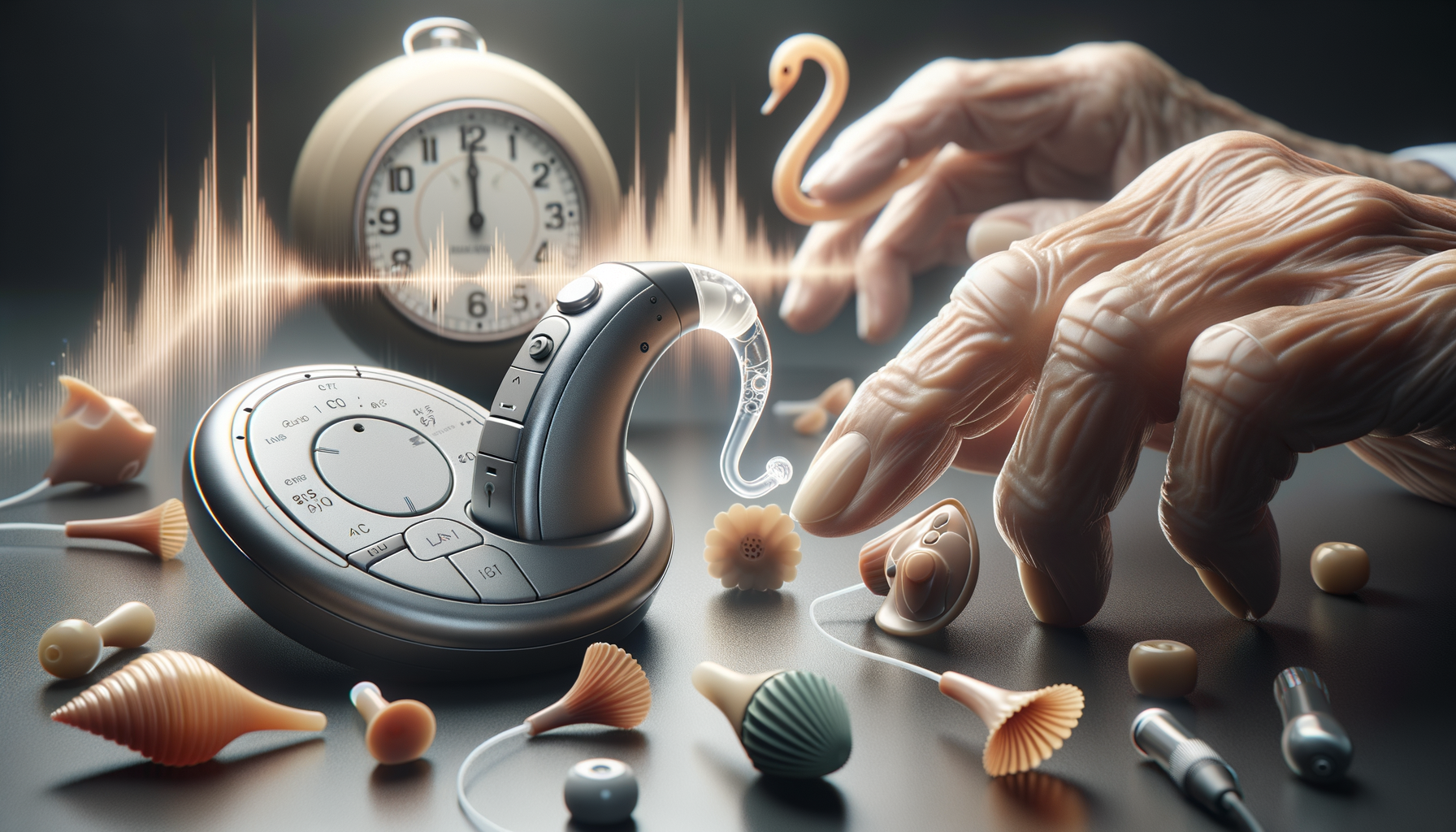Understanding the Need for Hearing Aids in Seniors
As we age, our senses naturally decline, and hearing is no exception. For seniors, especially those over 80, hearing loss can significantly impact daily life, affecting everything from social interactions to safety. Understanding the need for hearing aids is crucial in addressing these challenges. The World Health Organization reports that over 466 million people globally suffer from disabling hearing loss, with a significant portion being seniors. This statistic underscores the importance of hearing aids in enhancing the quality of life for older adults.
Hearing aids are not just about amplifying sound; they are about reconnecting with the world. For seniors, maintaining social connections is vital for mental health and overall well-being. Hearing aids facilitate clearer conversations, reduce feelings of isolation, and boost confidence. Moreover, they play a crucial role in safety, helping seniors hear alarms, traffic, and other important auditory cues in their environment.
Choosing the right hearing aid involves considering factors such as the degree of hearing loss, lifestyle needs, and personal preferences. Some seniors may prefer devices that are discreet, while others might prioritize features like Bluetooth connectivity or rechargeable batteries. Understanding these needs helps in selecting a hearing aid that not only meets auditory requirements but also fits seamlessly into a senior’s lifestyle.
Types of Hearing Aids Suitable for Seniors
The market offers a variety of hearing aids, each designed to cater to different levels of hearing loss and personal preferences. For seniors, particularly those aged 80 and above, selecting the right type is essential. Here are some common types:
- Behind-the-Ear (BTE): These are popular among seniors due to their ease of use and durability. They sit comfortably behind the ear and are suitable for a wide range of hearing loss levels.
- In-the-Ear (ITE): Custom-fitted to the outer ear, ITE aids are discreet and easy to handle, making them a favorable choice for seniors who prioritize aesthetics.
- Receiver-in-Canal (RIC): Known for their natural sound quality, RIC aids are similar to BTE but are less visible, offering a balance between discretion and performance.
- Completely-in-Canal (CIC): These are among the smallest hearing aids available, fitting entirely inside the ear canal. They are nearly invisible but may not be suitable for severe hearing loss.
When selecting a hearing aid, it is important to consider the senior’s dexterity and vision. Devices with larger controls or those that are easier to handle might be more suitable for those with limited dexterity. Additionally, features such as telecoil, which improves hearing on telephones and in public places, can be beneficial for seniors.
Key Features to Look for in Hearing Aids for Seniors
Modern hearing aids come equipped with a variety of features designed to enhance the listening experience. For seniors, certain features can make a significant difference in usability and performance:
- Noise Reduction: This feature helps in minimizing background noise, making it easier for seniors to focus on conversations in noisy environments.
- Directional Microphones: These microphones pick up sounds from a specific direction, which is particularly useful in crowded settings.
- Rechargeable Batteries: Eliminates the need for frequent battery changes, offering convenience and ease of use for those with limited dexterity.
- Bluetooth Connectivity: Allows hearing aids to connect with smartphones and other devices, enabling streaming of calls, music, and more directly to the hearing aid.
- Telecoil: Enhances hearing in public places with induction loop systems, such as theaters and churches.
These features not only improve the auditory experience but also integrate hearing aids more seamlessly into the daily lives of seniors. It is advisable to consult with an audiologist to determine which features are most beneficial based on individual hearing needs and lifestyle.
Challenges and Solutions in Adopting Hearing Aids for the Elderly
While hearing aids offer numerous benefits, seniors may face challenges in adopting them. Common issues include discomfort, difficulty in adjusting to new sounds, and managing device maintenance. Overcoming these challenges requires a combination of patience, support, and professional guidance.
One of the primary challenges is the initial discomfort and unfamiliarity with amplified sounds. Seniors might find the transition to using hearing aids overwhelming. To address this, gradual acclimatization is recommended. Wearing the device for short periods and gradually increasing the duration can help seniors adjust more comfortably.
Another challenge is the maintenance of hearing aids. Regular cleaning and battery changes are essential for optimal performance. Seniors may benefit from devices with rechargeable batteries or those with easy-to-clean components. Family members or caregivers can also play a supportive role by assisting with maintenance tasks.
Furthermore, regular follow-ups with an audiologist are crucial. These sessions provide an opportunity to fine-tune the hearing aids for better performance and address any concerns the senior might have. Audiologists can also offer valuable advice on maximizing the benefits of hearing aids.
Conclusion: Enhancing Life Quality with the Right Hearing Aid
For seniors, particularly those aged 80 and above, hearing aids are more than just devices; they are gateways to a fuller, more connected life. By addressing hearing loss, seniors can enjoy improved social interactions, enhanced safety, and a greater sense of independence. The journey to finding the right hearing aid involves understanding individual needs, exploring available options, and embracing the technology that fits seamlessly into their lifestyle.
Ultimately, the goal is to empower seniors to live life to the fullest, with hearing aids playing a pivotal role in enriching their auditory experience. With the right support and guidance, seniors can overcome the challenges associated with hearing loss and enjoy a vibrant, engaging life.




Leave a Reply